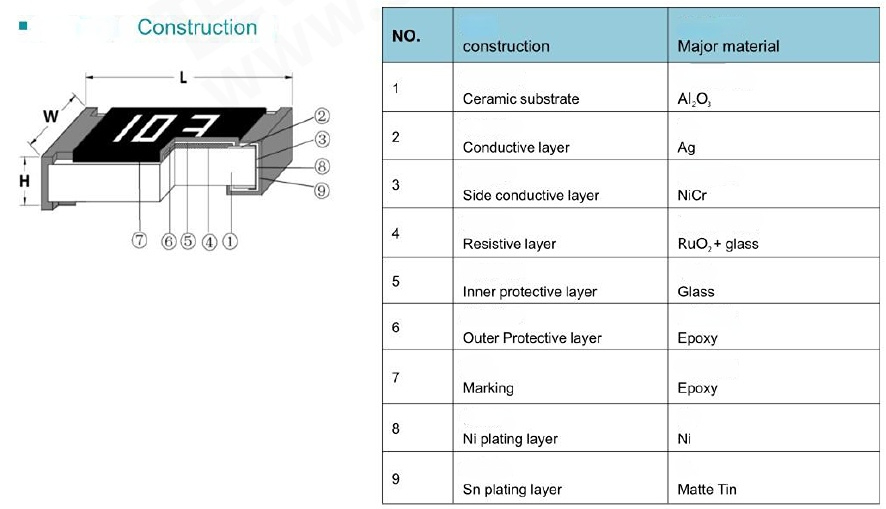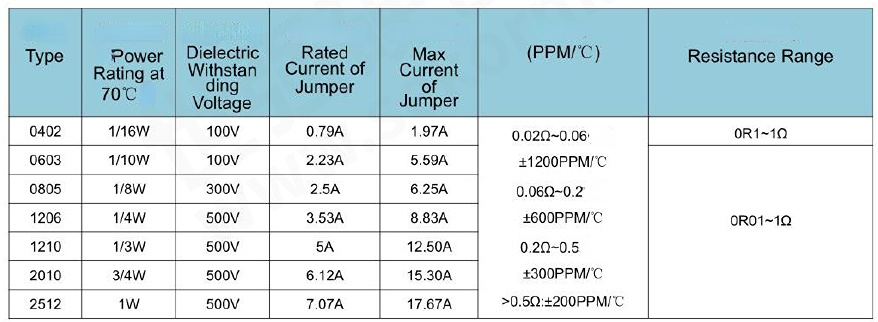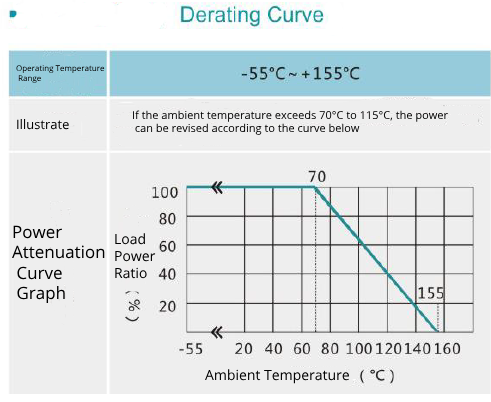In this article, FOJAN Electronics, a supplier for LCSC Electronics, will introduce its FRL Series Thick Film Resistor. The article will cover its construction, features, and selection tips.
The main products of FOJAN Electronics include chip thick film resistors, thin film resistors, alloy resistors, ultra-low resistance, automotive grade resistors, anti-sulfide resistors, chip capacitors, etc. The products find application in microelectronics and computers, photovoltaic, new energy, automotive, and many other emerging and high-tech fields.
Thin Film Resistor VS Thick Film Resistor
There are two types of most common resistors: Thin film resistors and thick film resistors. The difference between them is the resistive layer on the ceramic substrate. Despite their similar appearance, their properties and manufacturing processes are distinct. The names of these resistors originate from the thickness of their layers. Thin films are less than 0.1 microns thick, while thick films are thousands of times thicker.
The primary distinction between the two processes is the method of applying the resistive film to the substrate. The fabrication process for thin film resistors uses a similar evaporation method. It involves evaporating a resistive material onto the surface of an insulating material. However, the production process for thick film resistors involves firing a specific slurry onto a substrate. Generally speaking, thin film resistors are more precise, have a better temperature coefficient, and are more stable. Thick film resistors are more suitable for less demanding applications due to their lower cost.
FRL Series Low-Resistance Thick Film Resistors
The FRL series launched by FOJAN are low-resistance thick film chip resistors. They are suitable for measuring instruments such as air conditioners, refrigerators, motherboards, mobile phones, and electricity meters. FRL series low-resistance thick film chip resistors are small in size, light in weight, high in reliability, and have low resistance, so they are more suitable for large currents. It is an ideal choice if you have a circuit application that requires building current sensing circuits and shunts.

Thick Film Resistor Product Features
Small size and lightweight
The packaging types of FRL series low resistance thick film chip resistors cover common packaging categories such as 0402-2512, which can significantly reduce the use of plug-in resistors, thereby better reducing product volume and improving product competitiveness.

Low resistance value, suitable for large currents to pass through
The maximum rated power of the FRL series low-resistance thick film chip resistors can reach 1W@70℃. And the corresponding maximum rated current can reach 7.07A. The resistance range of the 0402 package resistor is 0.1Ω-1Ω. And the resistance value range of the 0603-2512 package resistor is 0.01Ω-1Ω. Due to the small resistance, it is very suitable for large currents to pass through. So it can be better for current detection circuits.
Small temperature coefficient, high resistance stability
The temperature coefficient of resistance (TCR) represents the relative change in resistance value when the temperature changes by 1 degree Celsius. The unit of measurement is ppm/℃. If the resistance of the FRL series low-resistance thick film chip resistor you choose is higher than 0.5Ω, the TCR is ±200 PPM/℃. This indicator is suitable for general current detection circuits. Note that TCRs vary across different resistance ranges. Calculations are necessary to confirm whether it meets the requirements during selection.
Thick Film Resistor Selection Tips
When choosing a resistor power, it is essential to consider the power attenuation curve in the resistor datasheet. The FRL series low resistance thick film chip resistor datasheet contains the power attenuation curve. It shows the relationship between the actual working rated power and the actual working ambient temperature of the resistor.
When the ambient temperature is below 70°C, select the resistor power based on the rated power specified in the datasheet. The rated power specified in the datasheet is when the ambient temperature is 70°C. If the ambient temperature exceeds 70°C, power derating is necessary. For instance, if the ambient temperature reaches 120°C, the curve indicates that the resistor’s actual rated power is only 40% of its rated power at 70°C. Therefore, you should pay special attention to the product used in high-temperature environments.

The FRL series of low-resistance thick-film chip resistors have stable performance and a variety of packaging types, which can better meet the selection requirements of engineers. FOJAN Electronics strives to become a world-class electronic component integration supporting supplier and solution provider.
LCSC Electronics is the authorized distributor of FOJAN Electronics. View and select FOJAN’s thick film resistor and other products on LCSC.
